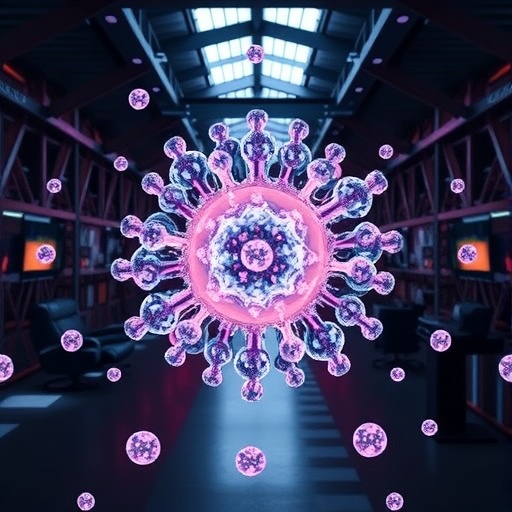In a groundbreaking collaboration that combines the intellectual might of two prominent nations, the U.S. National Science Foundation (NSF) and the United Kingdom Research and Innovation (UKRI) have set the stage for an extraordinary exploration of quantum sciences. They are investing in eight innovative research projects that hold the potential to unlock new frontiers in quantum computing, ultra-precise navigation, and secure communications. The total funding of this ambitious endeavor reaches approximately $8.9 million, evidencing a shared commitment toward advancing the understanding and application of quantum mechanics in the context of chemical systems and molecular behavior.
These pioneering projects are spearheaded by a combination of elite researchers from renowned institutions. One such project from the University of Chicago’s Pritzker School of Molecular Engineering is being led by respected professors David Awschalom and Giulia Galli, in collaboration with Danna Freedman from the Massachusetts Institute of Technology. The duality of their expertise will facilitate a deep delve into how quantum information influences chemical reactions and molecular systems, leading to novel applications in technology.
The upcoming research aims to construct a “chemical toolbox” that allows for the creation, sustenance, and detection of quantum entanglement within complex molecular structures. This endeavor is crucial for making strides in the current landscape of quantum technologies, which predominantly pivot on atoms and photons. By thoroughly probing into the intricacies of chemical systems, the research teams endeavor to establish a new realm of capabilities in quantum computing, quantum sensing, and communication technologies.
In the light of this partnership, their efforts exemplify a trend of increasing international collaboration focused on scientific inquiry and technological advancement. The U.S. and U.K. are aligning their scientific communities to explore previously uncharted territories within quantum chemistry. The initiative is expected not only to enhance technological capabilities but also to forge lasting educational opportunities for graduate students and emerging researchers in fields such as quantum optics, molecular spectroscopy, and nanofabrication.
The foundational investment from NSF is a testament to the importance of strategic, bilateral research collaborations. As articulated by Michael Kratsios, Director of the White House Office of Science and Technology Policy, this partnership aims to demystify quantum phenomena as they pertain to chemical reactions and molecular systems. By leveraging this unique research collaboration, the partnership is anticipated to yield transformative insights that could redefine our understanding of quantum mechanics.
David Awschalom reflects on the initiative as a pivotal advancement that will facilitate the development of instruments increasingly vital to both scientific exploration and technological applications. This type of quantum technology has far-reaching implications, including the potential for enhanced sensors that could vastly improve our understanding of biological systems. The collective expertise at UChicago and their partners in the U.K. positions them well to investigate these pressing scientific questions.
As researchers embark on this journey, they will explore the correlations between quantum states and chemical interactions. The integrated approach taken in these projects aims to generate innovative solutions that could revolutionize quantum computing and secure communications. Real-world applications range from the creation of ultrasensitive molecular compasses to the development of cutting-edge molecular-scale memory systems and novel qubit types.
The overarching goal of this initiative is not simply to achieve technological advancements, but to achieve a deeper scientific understanding that leads to transformative applications. According to Brian Stone, acting director of the NSF, this partnership is a clear demonstration of how collective scientific endeavors can address global challenges across a spectrum of applications including computation, navigation, and sensing.
Integration of these quantum information projects within the broader frameworks of international policy and cooperation is also significant. This research aligns with the U.S.-UK Technology Prosperity Deal, which promotes collaboration in critical domains like artificial intelligence and quantum science, thereby reinforcing the commitment of both countries toward fostering innovation and economic growth.
Moreover, the projects are poised to catalyze new institutional collaborations, serving as a catalyst for enhanced long-term partnerships among American and British research teams. Tyler Prich from the University of Chicago highlights the comprehensive nature of these ventures and their role in shaping the future landscape of quantum information science.
As the NSF and UKRI allocate additional funding and collaborative opportunities in the forthcoming fiscal years, researchers are eagerly poised to tackle the scientific quandaries at the forefront of chemical systems and their quantum properties. With each project contributing new insights, the cumulative knowledge generated holds promise for redefining existing paradigms within various scientific fields.
In conclusion, the convergence of American and British scientific prowess in quantum chemistry not only symbolizes a transformative shift in collaborative research but also serves as a beacon for future explorations in technology and communication systems. As researchers delve into the relationship between quantum information and molecular dynamics, the potential for revolutionary discoveries continues to burgeon, paving the way for new technologies that could have a profound impact on daily life and beyond.
Subject of Research: Quantum Information in Chemical Systems
Article Title: NSF and UKRI Fund Joint Research Projects in Quantum Science
News Publication Date: October 2023
Web References: NSF, UKRI
References: UChicago Pritzker School of Molecular Engineering
Image Credits: Credit: University of Chicago
Keywords
Quantum chemistry, quantum computing, chemical reactions, molecular systems, secure communications, international collaboration, scientific research.




